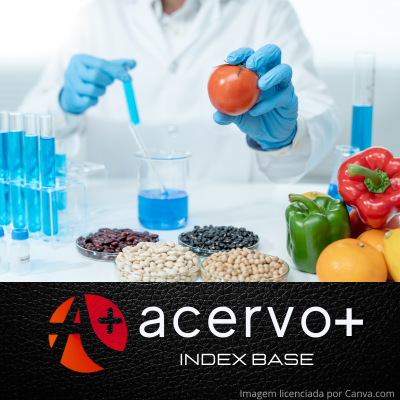Imunonutrição nos pacientes em Unidade de Terapia Intensiva: perspectivas atuais sobre o uso de Glutamina e Ômega-3
##plugins.themes.bootstrap3.article.main##
Resumo
Objetivo: Elucidar a relevância do uso de imunonutrientes no cenário de pacientes críticos internados em unidades de terapia intensiva (UTI), com foco no emprego de Glutamina e Ômega-3. Revisão bibliográfica: Pacientes em condições críticas internados em UTI apresentam-se em estado de hipermetabolismo e hipercatabolismo, estados esses associados ao aumento das necessidades nutricionais, de balanço nitrogenado negativo e de imunossupressão. Nesse sentido, o uso da abordagem nutricional com imunonutrientes tem se apresentado como benéfico devido ao seu impacto positivo no controle da resposta imunológica e da resposta inflamatória aguda desregulada. A glutamina - aminoácido mais abundante no plasma e no músculo esquelético - e o ômega-3 - um ácido graxo com importante função anti-inflamatória - são nutrientes abordados nesse estudo. Conclusão: O uso de nutrientes específicos, como a glutamina e o ômega-3, melhora a função imunológica e metabólica. Contudo, a literatura atual apresenta resultados conflitantes, com apenas alguns estudos mais robustos sugerindo benefícios quando comparado ao uso de nutrição padrão.
##plugins.themes.bootstrap3.article.details##
Copyright © | Todos os direitos reservados.
A revista detém os direitos autorais exclusivos de publicação deste artigo nos termos da lei 9610/98.
Reprodução parcial
É livre o uso de partes do texto, figuras e questionário do artigo, sendo obrigatória a citação dos autores e revista.
Reprodução total
É expressamente proibida, devendo ser autorizada pela revista.
Referências
2. ANDRIOLLI C e FIGUEIRÊDO K. Balanço nitrogenado e adequação proteica de pacientes de um complexo de terapia intensiva. BJ. 2021; 36(4): 358–64.
3. APOSTOLOPOULOU A, et al. Effects of glutamine supplementation on critically ill patients: Focus on efficacy and safety. An overview of systematic reviews. Nutrition. 2020; 78: 110960.
4. BERGER MM, et al. Exudative glutamine losses contribute to high needs after burn injury. JPEN J Parenter Enteral Nutr. 2022; 46(4): 782–8.
5. CASTRO M, et al. Posicionamento BRASPEN sobre o uso clínico de ômega 3 via parenteral. BJ. 2022; 37(2).
6. CASTRO MG, et al. Diretriz BRASPEN de Terapia Nutricional no Paciente Grave. 1st ed. São Paulo: BRASPEN Journal, 2023; 54.
7. COMPHER C, et al. Guidelines for the provision of nutrition support therapy in the adult critically ill patient: The American Society for Parenteral and Enteral Nutrition. JPEN J Parenter Enteral Nutr. 2022; 46(1): 12–41.
8. COTOIA A, et al. Immunological effects of glutamine supplementation in polytrauma patients in intensive care unit. J Anesth Analg Crit Care. 2022; 2(1): 41.
9. CRUZAT V, et al. Glutamine: Metabolism and Immune Function, Supplementation and Clinical Translation. Nutrients. 2018; 10(11): 1564.
10. DUSHIANTHAN A, et al. Immunonutrition for Adults With ARDS: Results From a Cochrane Systematic Review and Meta-Analysis. Respir Care. 2020; 65(1): 99–110.
11. GHOLAMALIZADEH M, et al. Effect of glutamine supplementation on inflammatory markers in critically ill patients supported with enteral or parenteral feeding. JPEN J Parenter Enteral Nutr. 2022; 46(1): 61–8.
12. GIL R, PAOLA A. New insights about the effect of immunonutrition on the outcome of seriously ill patient: A narrative review. 2022; 11(2): 161-170.
13. HAINES KL, et al. Hospital change to mixed lipid emulsion from soybean oil-based lipid emulsion for parenteral nutrition in hospitalized and critically ill adults improves outcomes: a pre-post-comparative study. Crit Care. 2022; 26(1): 317.
14. HEYLAND DK, et al. A Randomized Trial of Enteral Glutamine for Treatment of Burn Injuries. N Engl J Med. 2022; 387(11): 1001–10.
15. MALEKAHMADI M, et al. Effect of enteral immunomodulatory nutrition formula on mortality and critical care parameters in critically ill patients: A systematic review with meta-analysis. Nurs Crit Care. 2022; 27(6): 838–48.
16. NITA N e LESTARI W. Efficacy of immunotutrition containing omega-3 fatty acids to reduce mortality in acute respiratory distress syndrome: An evidence-based case report. Ind J Clin Nutr Physic. 2022; 5(1): 12–20.
17. PEREIRA DC, et al. Network Dos Mediadores Lipídicos Com Doenças Autoimunes: Uma Revisão De Literatura. RECIMA21. 2021; 2(4): 24238.
18. PRADELLI L, et al. Omega-3 fatty acid-containing parenteral nutrition in ICU patients: systematic review with meta-analysis and cost-effectiveness analysis. Crit Care. 2020; 24(1): 634.
19. ROGERO MM, et al. Potential benefits and risks of omega-3 fatty acids supplementation to patients with COVID-19. Free Radic Biol Med. 2020; 156: 190–9.
20. SINGER P, et al. ESPEN practical and partially revised guideline: Clinical nutrition in the intensive care unit. Clin Nutr. 2023; 42(9): 1671–89.
21. SOUZA YDDES, et al. Impacto do uso de imunonutrientes no desfecho clínico de pacientes críticos: uma revisão sistemática de estudos clínicos. DEMETRA. 2023; 18: 77540.
22. WISCHMEYER PE. Glutamine in Burn Injury. Nutr Clin Pract. 2019; 34(5): 681–7.
23. WISCHMEYER PE. The glutamine debate in surgery and critical care. Curr Opin Crit Care. 2019; 25(4): 322.

